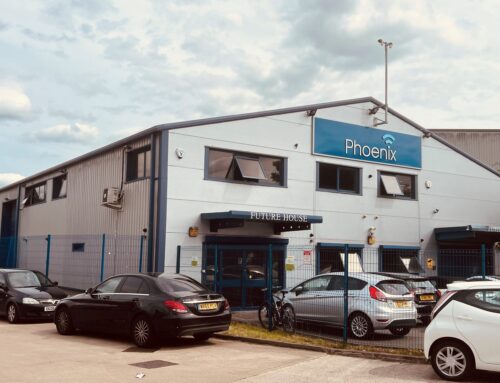 More and more businesses are treating mobile phones as a core part of their IT assets. As trends like home and remote working take off, the need to ensure employees have the right equipment to work in places other than the office increases. Along with laptops, mobile and smartphones are right at the top of that curve.
More and more businesses are treating mobile phones as a core part of their IT assets. As trends like home and remote working take off, the need to ensure employees have the right equipment to work in places other than the office increases. Along with laptops, mobile and smartphones are right at the top of that curve.
Even in the office, using a smartphone for work-related tasks is now commonplace. According to one survey, 85% of SMEs say employees now use mobiles for work. Organisations have had to work through the issues of staff using their own devices fon the job, with all the security concerns that opens up. While some have chosen to embrace it with Bring-Your-Own-Device (BYOD) policies, others have chosen to invest in fleets of company phones to provide to staff.
When you are talking smartphones, this quickly becomes a major capital and operational expense (both buying the devices and paying for the contracts). If your main priority is to enable staff to be on call or have access to a company phone as they work from home, you could go down the route of buying low cost standard mobile handsets, which allow employees to make and receive calls and texts without the data and internet functionality of a smartphone.
But many businesses see the extra investment in smartphones as well worth it. Top end models with large screens and powerful processors support many of the same activities that in the past we’d have needed to carry a laptop with us to carry out. Smartphones can be used to check and respond to emails on the move, they let you download, read and edit documents, you can access cloud-based business applications and look up information mid-way through a meeting miles away from the office, or contribute to a discussion with colleagues without being physically present. Nearly half of workers who carry company smartphones have used them to take part in video conferences using platforms like Skype for Business.
Save thousands on premium smartphones
The pinch for businesses is that the smartphones best suited to performing all of these tasks as staff work on the move also happen to be expensive. For example, according to Techradar, the top three smartphones for business use are the huge screened, 1TB Samsung Galaxy Note 9, the all-round high performer Samsung Galaxy S10 Plus, and the OnePlus 6, which packs plenty of bang for slightly less bucks than the Samsung options.
New Samsung Galaxy Note 9 handsets currently retail at £649 from Samsung UK. The newer Galaxy S10 Plus sells for £799, with a 512GB, 5G-ready version available for £1,099. The OnePlus 6 goes for £499 for the 6GB RAM, 128 GB storage version (with no option to expand supported).
Looking at pre-owned handsets in grade A condition, the Galaxy Note 9 is widely available for around the £400 mark, the Galaxy S10 Plus for between £500 and £600, and the OnePlus 6 for around £350. That means businesses are consistently looking at savings of around third off the new device RRP for pre-owned handsets in excellent physical condition and working order.
When you multiply those savings across your entire workforce, it demonstrates how used phones can potentially save companies thousands of pounds when investing in the very best smartphone options available.
Why used is better than new
With the prospect of saving your business thousands in the cost of new handsets, more businesses are looking at used devices as an alternative, after all, it’s already common practice to give employees used laptops, why not phones.
Phoenix Cellular are the leading supplier of wholesale used mobile phones, we stock in excess of 20,000 units at any one time, ready to be shipped for next day delivery to anywhere in Europe so long as your order is placed before 3pm.
Speak to a member of our trade team today on +441270 449999 or email sales@phoenixcellular.co.uk


